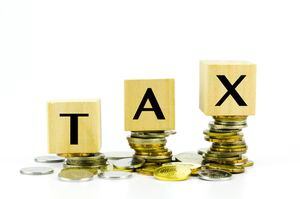Guernsey to remain on Netherlands tax blacklist
GUERNSEY’S zero rate of corporation tax has caused it to remain on the Dutch tax blacklist, Policy & Resources has said.

The publishing of the list comes as the Netherland’s Ministry of Finance stated there would be a crackdown on tax avoidance and evasion.
The Dutch blacklist contains eight jurisdictions that are currently banned by the EU, as well as a further 15 low-tax jurisdictions, including Guernsey, Jersey and the Isle of Man.
The EU took Guernsey off its tax greylist in 2017 after the island addressed concerns surrounding legal economic substance requirements – in essence, most companies are required to have operations on island proportional to profits booked here.
These measures were not comprehensive enough for the Dutch Ministry of Finance, however, which has blacklisted any jurisdiction with a corporate tax rate below 9%.
‘By drawing up its own stringent blacklist, the Netherlands is once again showing that it is serious in its fight against tax avoidance,’ said State Secretary for Finance Menno Snel. ‘And that’s just one of the steps we’re taking.’
The blacklist is designed to fulfil a number of functions, including preventing companies from avoiding tax by moving mobile assets to low-tax jurisdictions.
It will also be used to implement a withholding tax on interest and royalty payments to listed jurisdictions from 2021 at the Dutch corporate tax, which is expected to be 21.7%.
The goal is to prevent funds being channelled to tax havens through the Netherlands.
The decision to leave Guernsey on the list, while countries often considered tax havens, such as Ireland – which offers a corporate tax rate of 6.25% for revenue tied to a company’s patent or intellectual property – are not could be controversial.
A Policy & Resources spokesperson said that in March 2019 the European Council concluded that Guernsey should be whitelisted as a cooperative jurisdiction in respect of tax matters.
‘This followed a comprehensive review looking at the principles of tax transparency, fair taxation and Beps (base erosion and profit shifting) compliance as well as the implementation of a new economic substance regime in 2018,’ they said.
‘This centralised EU listing process is intended to replace national blacklists of EU member states to provide a common approach, a step recently taken by Croatia.
‘However, EU member states are able to maintain their own lists based on different criteria to the EU list. From January 2019 the Netherlands implemented new Controlled Foreign Companies (CFC) rules including a blacklist based on new criteria to include jurisdictions with a corporate tax rate of less than 9% as well as jurisdictions blacklisted under the centralised EU process. The Policy & Resources committee continues to work alongside Jersey and the Isle of Man to clarify the rationale behind the Netherlands blacklist.’





